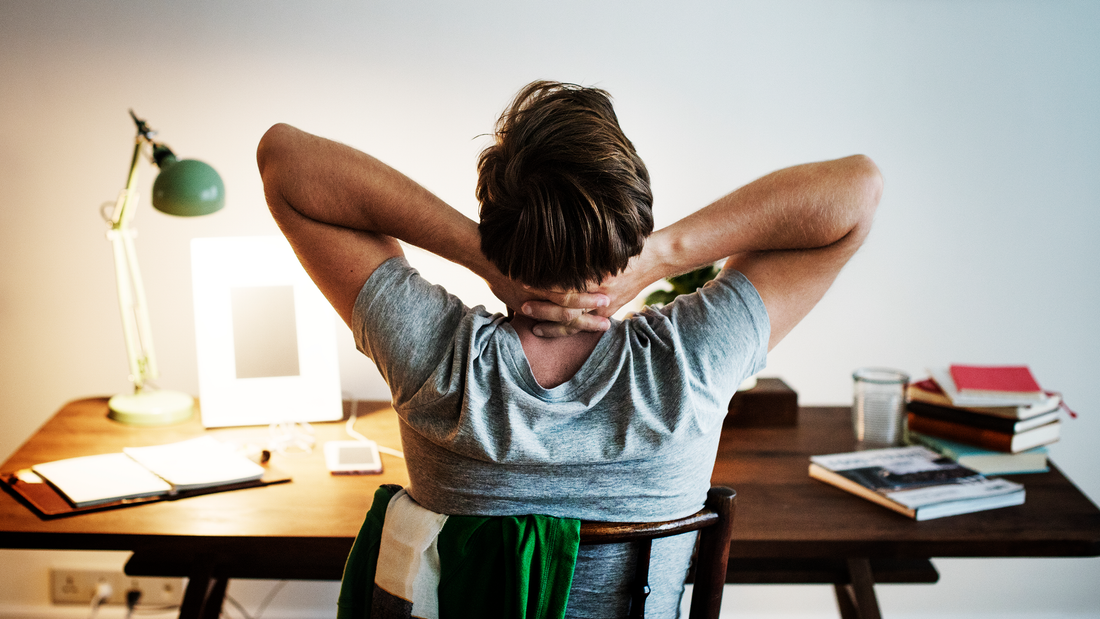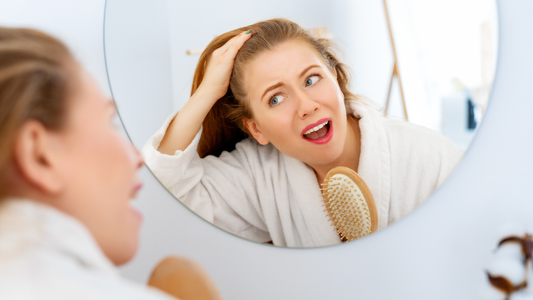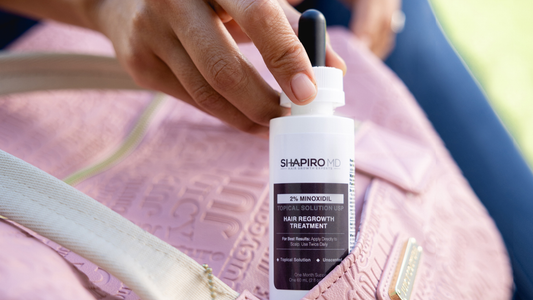It’s no secret that stress can take a toll on your overall health. According to the American Psychological Association, stress has an adverse effect on just about every system of the body, including the musculoskeletal system, respiratory, cardiovascular, endocrine, gastrointestinal and nervous systems. Stress even affects the male and female reproductive systems.
That said, there are lesser-known impacts of stress, one of which is hair loss.
The term "pulling out your hair" may be more literal than you think. In addition to other physical side effects such as weight gain, anxiety, trouble concentrating and nausea, you may notice that your locks are looking a little less lush than they were before you became a ball of nerves. Fortunately, hair loss from stress doesn't have to be permanent.
The key to treatment begins with understanding what type of thinning you’re experiencing.
Three Types of Stress-Induced Hair Loss
Hair loss is not the same for everyone. In addition to there being "stress-induced hair loss," there are three subtypes of this pervasive problem:
Trichotillomania: This type of hair loss may very well be where the term "pulling out your hair" came from. Individuals who have this particular condition experience an irresistible urge to pull hair from their scalps, eyebrows and other areas of their bodies. Strangely enough, hair pulling can be a way of dealing with uncomfortable or unwanted feelings, such as stress. Loneliness, frustration, boredom and more discomforts can all trigger trichotillomania.
Telogen Effluvium: When a person has this condition, his or her stress manifests itself in such a way that quite literally “pushes out through the scalp.” When your body releases stress hormones in large quantities, they induce hair follicles to go into the normal resting phase of the hair growth process, called the telogen phase. Within a few months, those resting locks may just fall out during a brushing, washing or combing.
Alopecia areata: Though it’s not entirely clear what causes alopecia areata, research suggests that severe stress can be a major contributing factor to what’s known colloquially as pattern baldness.
Fortunately, hair loss caused by stress does not have to be permanent. Oftentimes, the best cure for stress-induced hair loss is to get stress under control. Of course, that’s easier said than done, and for some people their hair loss is too aggressive to rely on only a change in mental wellbeing. If your hair loss is beyond the point of no return, or if you don't trust yourself to "just stop stressing," there are proven ways to encourage hair growth.
Ways To Successfully Stimulate Hair Growth
Many OTC hair loss serums claim to stimulate hair growth and reverse hair loss in a short amount of time, and many consumers believe the advertisements. Unfortunately, most OTC medications are ineffective. Hair loss stimulation requires a precise scientific formula, countless hours of research, and a few key ingredients – and it’s ideal if they’re backed by thorough clinical studies.
Research suggests that you can control stress levels, boost the immune system and reverse hair loss by eating a diet rich in fruits, vegetables, proteins and fibers. It also shows that increasing your intake of certain vitamins and minerals, such as iron, B12 and folic acid, can also help to reduce stress.
Mindfulness or meditation are other popular and effective ways to control and reduce stress. A few minutes each day of practiced, quiet and calming thought activities can help to reduce stress and get a handle on anxiety. As a result, these can help reduce the effects of stress on hair loss and hair thinning.
Exercise is another great way to control stress. Research has shown that regular exercise can help to bring cortisol levels down, one of the key stress factors in the body. Not only that, but exercise is good for your overall well-being in so many ways - getting an hour or two of activity each week is a sure way to improve your mindset and physical state.
While stress is certainly a factor for many individuals dealing with hair loss, it’s often not the only piece to the hair loss puzzle. Shapiro MD’s hair care experts can help you make an informed decision and get prescription medications from the comfort of home. It’s all done quickly online, and each treatment kit is tailored to your situation. Get started today at ShapiroMD.com.




